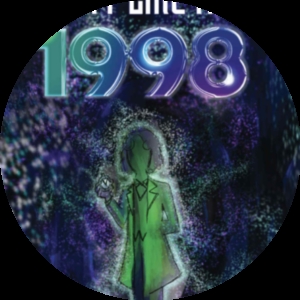Inspiration
I’ve been fascinated by the implications of Einstein’s E=MC2 equation ever since I found out the history of his discovery: the idea that the speed of light is a universal constant has some very odd outcomes, and the history of how this was discovered is fascinating. I knew I wanted to write a story about it. My enthusiasm for the subject is probably why both of my children have a formative memory of me explaining that time doesn’t exist.
It’s a fantastic bit of science, and as close to an idea of a scientific basis for heaven as you can get; timespace is fixed, and everyone that we ever knew is just waiting in their bit of it to see us again, if only we could get there. I thought there had to be a story in it.
Writing the Story
The story came pretty easily: the centre of it was that conversation I’d had with my children about time not existing, and with the need to explain to the reader the intricacies of Einstein’s theory of Special Relativity in a pithy way the structure was fairly fixed.
What I liked best about A Twist of Nothing was how it was told through the framework of a conversation with the main character’s daughter. From a technical perspective, it added in an audience surrogate who could receive the main character’s explanations about time travel, and it contributed an emotional dimension that gave the ending weight.
I didn’t want the word count to creep up too high for this one, so it quickly became a series of vignettes that each made their point as quick as they could and then left. At this point, the idea of science being advanced through failure and the disproving of decades, even centuries, of fixed ideas started to work its way in.
Pretty soon I had a story I was happy with.
The Pitch
The story went out to Escape Pod first for one simple reason: they are one of the few places that gives me feedback with a rejection, so if they don’t want it I least have the chance of tweaking it to make something that someone else might. And they didn’t want it: they suggested it was a bit dry, all head and no heart, and reading it I could see that it did lack something of a human connection to the big ideas.
I thought I could do something about that.
The original version of the story had been very much the protagonist’s view of things as they happened around him, most involving people he had no real connection to, bar his daughter. I retooled things, pulling some bits out, trimming others down even more than they were already, and giving myself room to show him interacting with some people who meant something to him.
At the same time, I also came across the One Electron Universe theory, which is a bit of a joke by those that proposed it but - because of its very nature - hasn’t actually been scientifically refuted. It felt like the perfect idea to co-opt in my story about the weird implications of real science, and would give a semi-scientific explanation for how my main character was breaking the “no time travel” restriction that was one of the main consequences of Special Relativity.
What Happened Next?
Since leaving Facebook and Twitter back in the early 2000s, I had been without any kind of social media. It wasn’t a decision I ever regretted, but I was aware there were sometimes opportunities I missed out on because I was less visible than my peers. Around the death of Twitter, I had decided to dip my toes into the more ethically sound waters of Masterdon, and then eventually to the not-yet-proven-unethical shores of BlueSky. Not only has this led to some great conversations, it meant that I was all of a sudden more aware of places that were looking for stories.
The Translunar Travelers’ Lounge wasn’t something I’d heard of before BlueSky, but when I saw they were looking for stories I looked through their extensive back catalogue and thought A Twist of Nothing might be something they would like. I sent it along, and very quickly got a response saying they would love to publish it.
Many stories fail at the very end, and a good final line can sell the whole story, as it ties together everything that came before it. A Twist of Nothing did that very well.
There was a round of editing with Bennett North, which went remarkably smoothly, and then almost before I knew it the story was release - my sixth published work this year. That’s an exceptionally busy year for me, and is only the things I can talk about at the moment. Suffice to say, I’m very happy.
Hopefully you might read the story and enjoy it, and then you’ll be happy too.


